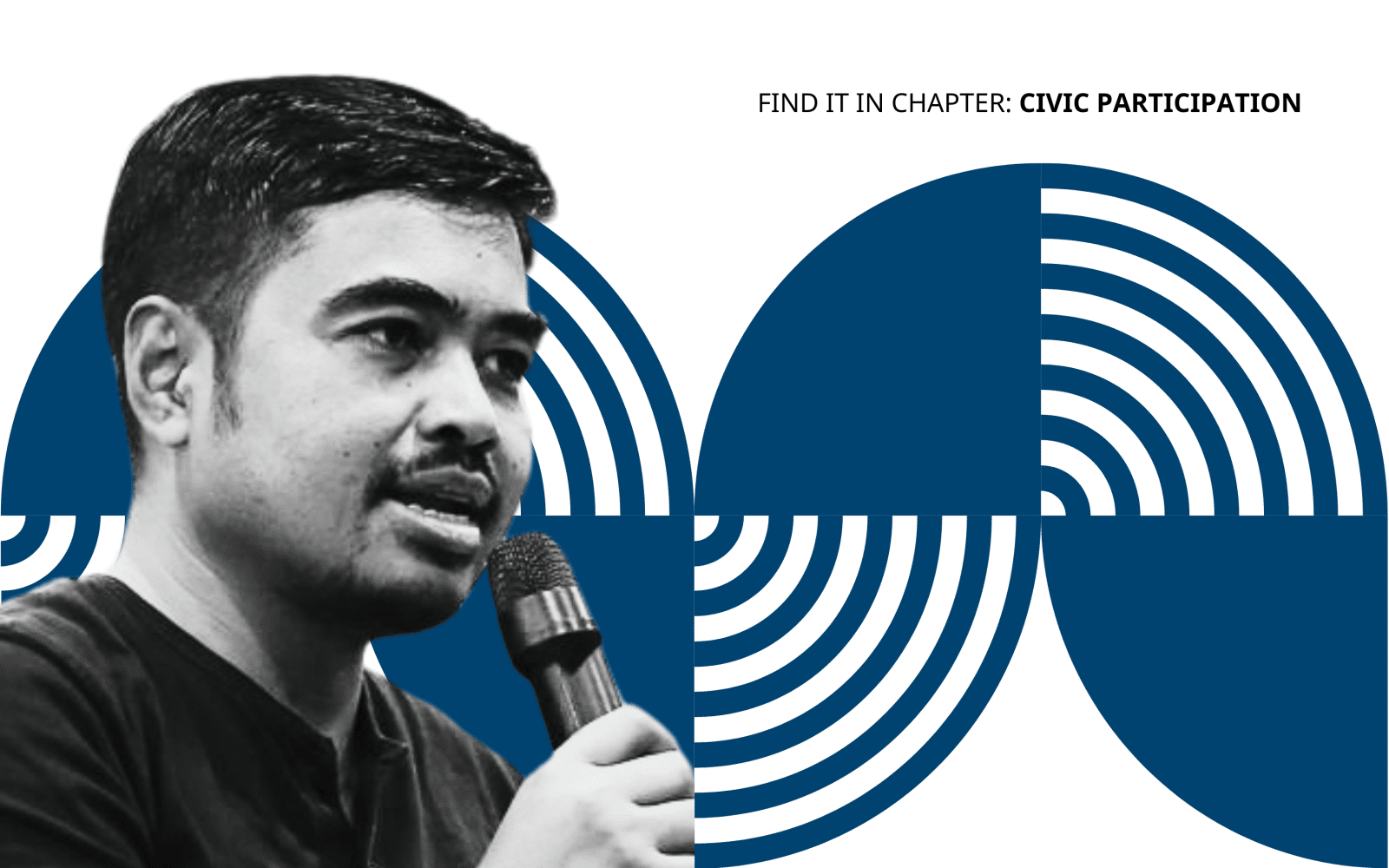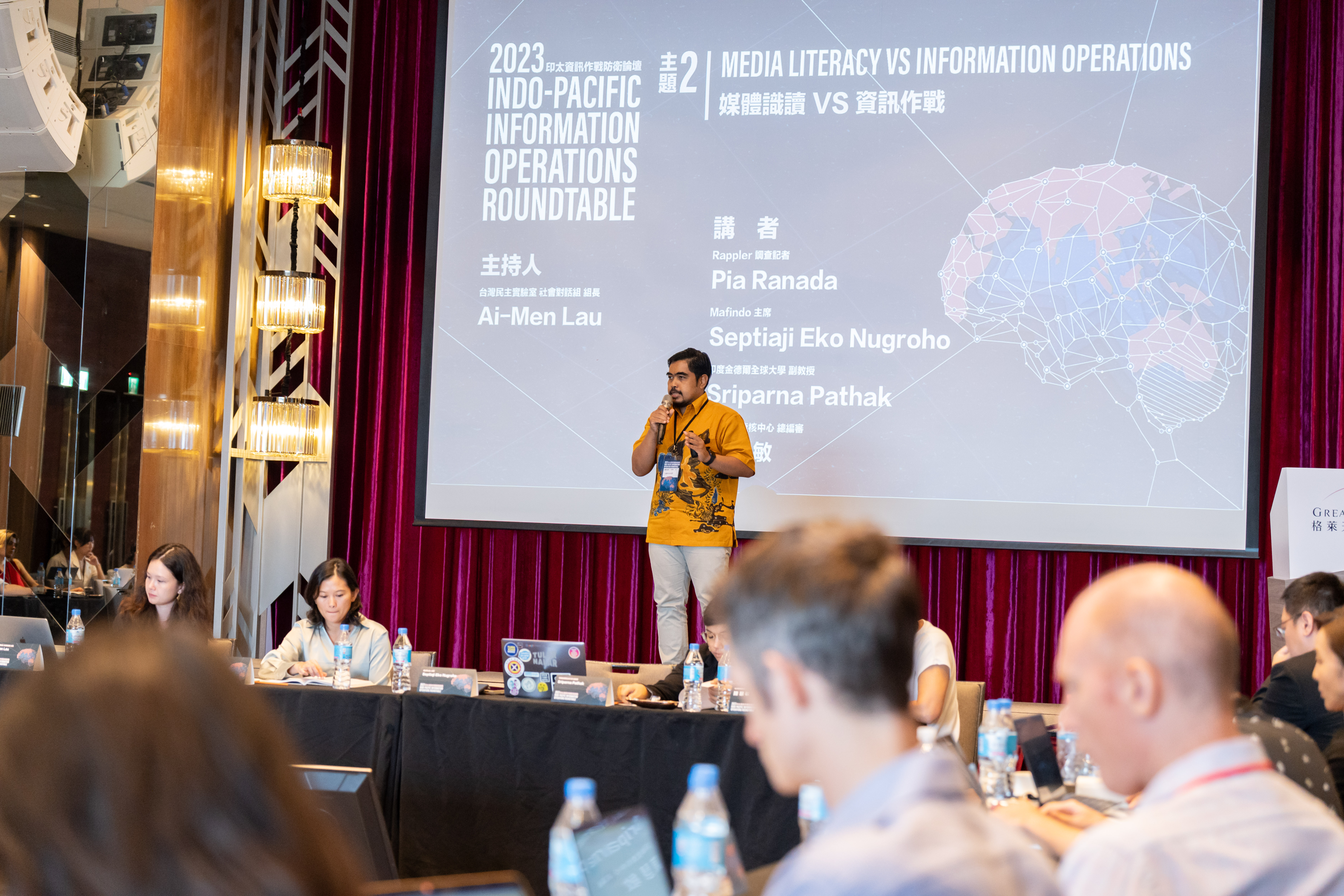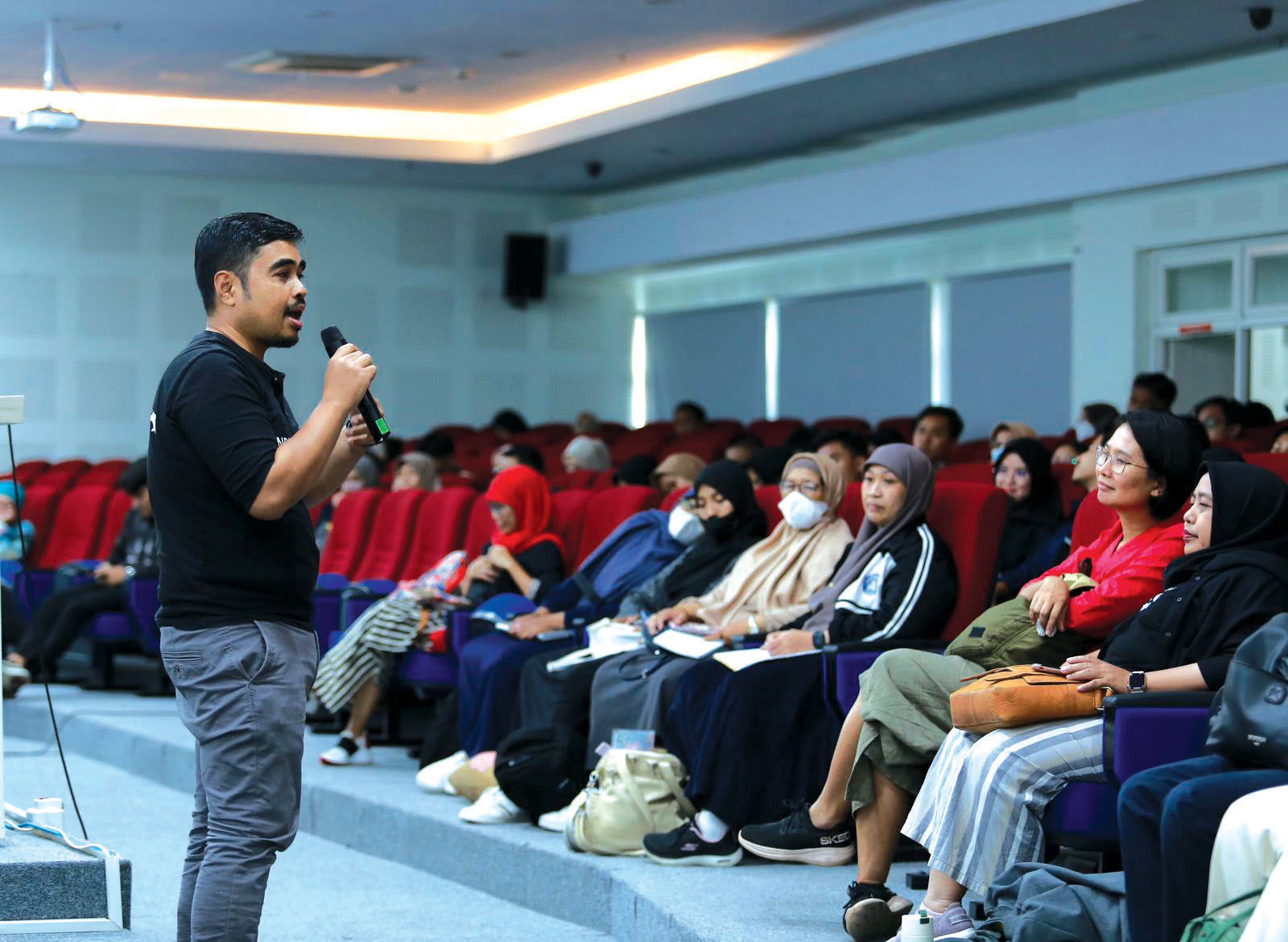Septiaji Nugroho
Founder and Chairman, MAFINDO
Fellow project website: www.mafindo.or.id
Indonesia’s large number of internet users – ranking fourth highest globally – and low levels of digital literacy make online hoaxes and misinformation a pervasive problem. In response, Septiaji Nugroho is building a civic resiliency movement open to everyone to engage against untruth and manipulation, strengthen digital literacy, and renew trust.

THE NEW IDEA
Septiaji’s vision is a world where every citizen is a fact-checker. Currently, the organization he founded, MAFINDO, has 95,000 online members in Indonesia who are mobilized as volunteer fact-checkers in forty-nine cities. MAFINDO serves as a hub that unifies citizens reputable journalists, social media, government agencies and more in the fight to protect elections, individuals even businesses targeted by organized crime syndicates. Key to this work is Septiaji’s understanding that many citizens inadvertently contribute to the spread of hoaxes and misinformation because of a lack of digital literacy. To address this issue, Septiaji developed a digital literacy education curriculum called Tular Nalar (spread critical thinking) as a crucial learning toolkit for Indonesian citizens. He has ... its mass distribution throughout the country through partnership with education organizations, media, the Ministry of Religious Affairs, and the Ministry of Education and Culture’s Online Learning System.
Septiaji’s curriculum has been also adopted by the Ministry of Information and Communication Indonesia and integrated into the National Digital Literacy Movement where Septiaji serves as an official advisor. MAFINDO also partners with one of the biggest Islamic organiza-tions, Muhammadiyah, to implement the ‘Spread Critical Thinking’ curriculum across its network of schools, pretty much everywhere across the country.
THE PROBLEM
Seventy-three percent of Indonesian citizens use online media to get information in daily life, and social media use has exploded. Indonesians are the second-largest audience for TikTok and the third largest on Facebook.

In 2015 Septiaji’s MAFINDO tracked roughly 10 incidents of hoaxes or disinformation campaigns per month; by 2021, that number rose to 3,000 a month.
Roughly half of misinformation in Indonesia relates to government regulations or information. For example, a recent hoax stated the government was inviting a hundred thousand Chinese employees to work in Indonesian cities. Such stories create fear and decrease trust in the government and more broadly. Misinformation about food and drugs have affected public health; racial and religious identity have also been weaponized in ways that create tension and division within society.
Over the past decade, elections have increasingly been a target for misinformation that mislead voters and trigger civil unrest. In the 2014 general election, thousands of Indonesians clashed with the police because they believed the result had been rigged, based on a steady stream of misinformation they received continuously through social media and WhatsApp groups. During Jakarta’s 2016 governor’s election, violence sparked by online hoaxes left hundreds injured. Video hoaxes in 2019 targeted the General Election Commission, showing (falsely) millions of pre-marked ballots arriving from China at Indonesian ports.
THE STRATEGY
Using a web-based application Septiaji designed, called ‘Cekfata’ or ‘Check Facts,’ MAFINDO members root out misinformation before it can spread. Journalists from 26 reputable online media organizations supply the data; citizens validate stories or flag fake news. Instead of having to debunk hoaxes, Septiaji considers this work “pre-bunking.” To date volunteers have validated or dis-proved hundreds of thousands of pieces of information. They have exposed over 2,500 cases of misinformation or hoaxes just about Covid-19.
Given the tendency of hoaxes to multiply and spread rapidly around elections as well as during health emergencies, MAFINDO leads a citizen sector collaboration that focuses here and that is also allied with three critical government institutions --the General Election Commission, the Election Supervisory Body (at both the national and local levels), and the National Agency of Drug and Food Control. This effect is now working to prevent and counter upcoming 2024 election misinformation. The collaboration focuses on pre-bunking, monitoring and debunking online content and improving election and health literacy.

Septiaji also partners with the Indonesian Police Force to ensure the application of a clear distinction between freedom of expression on the one hand, and hoaxes causing criminal offense on the other. As a result of the partnership, the National Police Force announced in 2021 it would address digital cases through a restorative justice approach, prioritizing preventive and educational actions, and encouraging mediation. The partnership with the police is significant not only for collaborative work to prevent and combat hoaxes, but also to protect citizens who contribute to fact-checking.
THE PERSON
(For example. His reflections on how early exposure to other countries contribute to his focus on civic resiliency)
As a student at the Bandung Institute of Technology Septiaji was selected to chair the school’s computer laboratories, managing 200 computers for students.
Invited by the Directorate General of Vocational Study for the Ministry of Education, Septiaji participated in compiling the network technology curriculum for vocational high school students, which later became the model for the national curriculum.
The turning point for him came after the 2014 general election, when online misinformation began to polarize people, and which triggered violent conflict in 2016. Septiaji felt very worried about the situation and was horrified to see even his educated colleagues spreading the misinformation. Motivated to change this, he and a circle of friends who shared these concerns create MAFINDO to fight untruth and division.